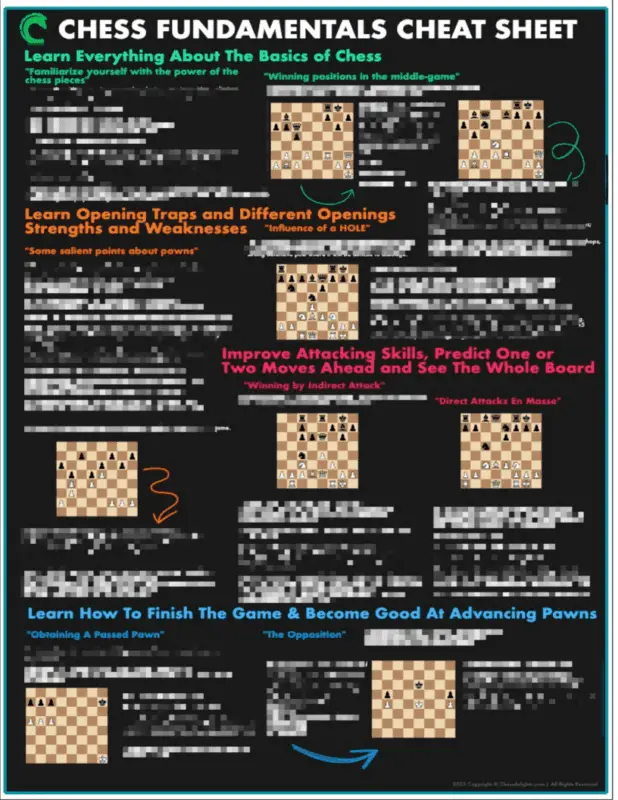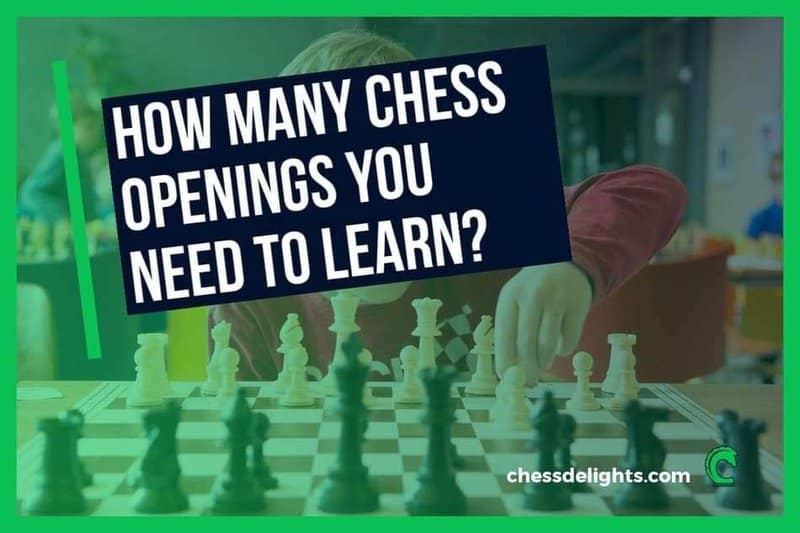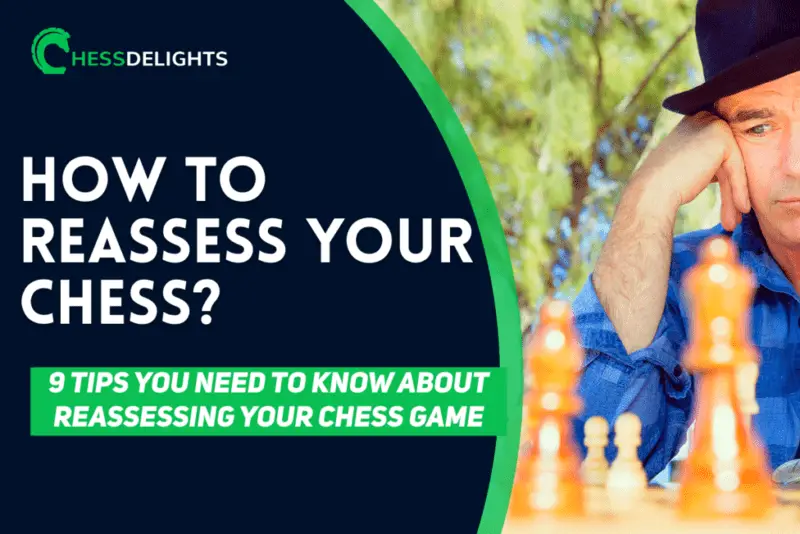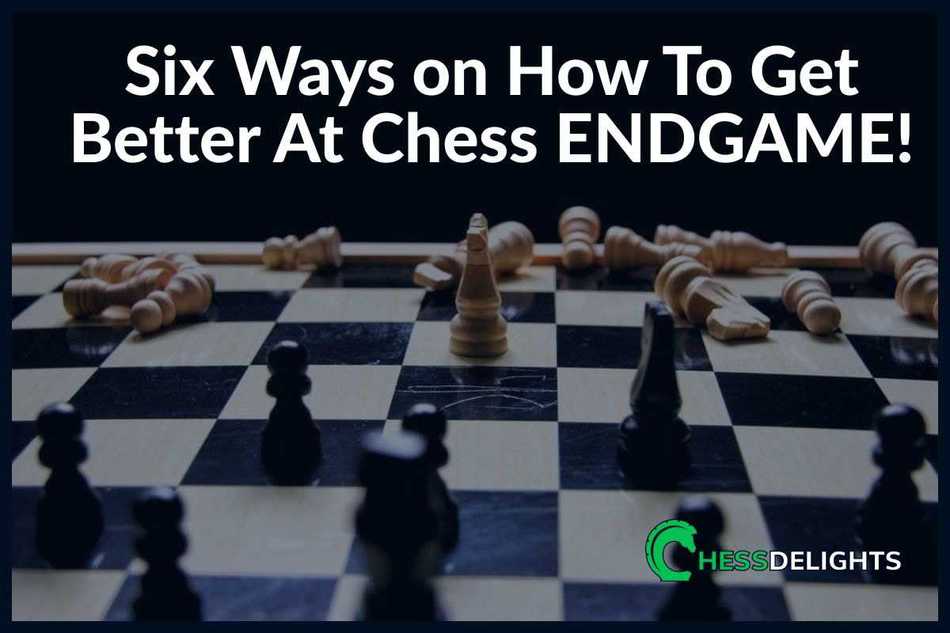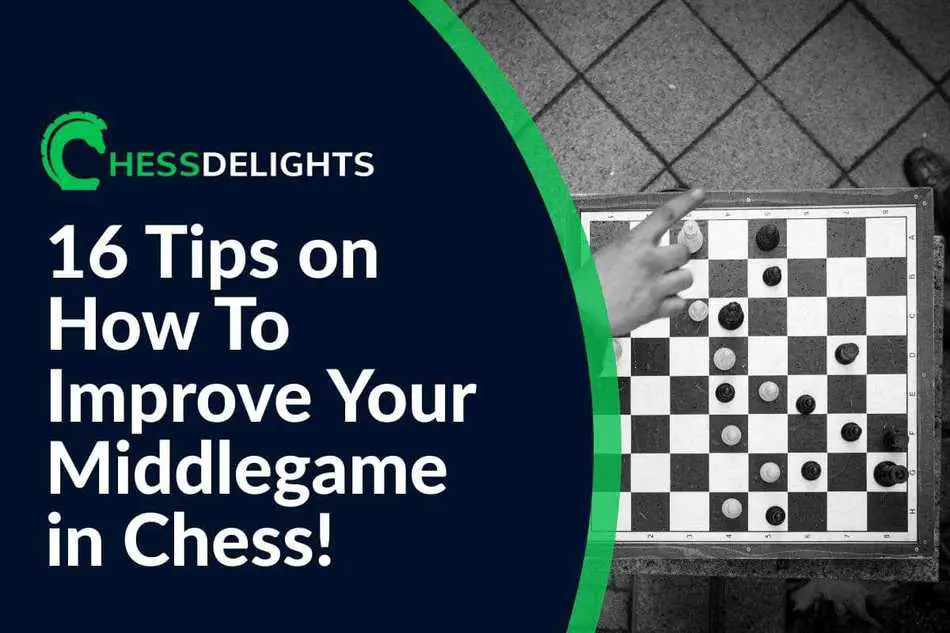Are you confused with so many chess openings you need to know? In this article, I'm going to share ideas on how many chess openings we need to learn. If you're starting with chess, you will find that there are a lot of things you need to learn.
You need to learn tactics, strategy, endgames, and so much more.
One of the most important things to learn is openings. By now, you surely know that there are so many chess openings to choose from.
There are so many of these that it is impossible to memorize every single one of them. This brings up a big question, how many chess openings should you learn?
Table of Contents
Key Concepts for Learning Chess Openings
- Understanding Over Memorization
- Memorizing all chess openings is unrealistic for humans.
- Focus on understanding the concepts behind the openings rather than memorizing exact moves.
- Grasping Ideas
- Learn the purpose of each opening.
- This knowledge helps you adapt to different situations, even if you don’t know every move order.
- Favorite Openings
- Having a few favorite openings is beneficial.
- Studying these in depth can provide a competitive edge in your games.
- Advantages of In-Depth Study
- A deep understanding of selected openings allows you to identify and exploit your opponent's mistakes.
- You become more resilient in defense against various strategies.
- Examples from Top Players
- Observe top players like GM Maxime Vachier-Lagrave, who excels in specific openings (e.g., Sicilian Najdorf, Grunfeld).
- Aim to study 2-3 openings thoroughly until you are very familiar with them.
Recommended Reading: If you want to learn tips on how to get better in endgames, read this guide.
What is the Strongest Chess Opening?
When selecting a chess opening to study, it's important to understand that there is no single “strongest” opening that guarantees victory. However, some openings have statistically better performance than others. Here’s a breakdown to help you choose.
Key Considerations
- No Guaranteed Victory: No opening guarantees a significant advantage; success depends on understanding and strategy.
- Study Required: Memorizing moves without comprehension won't lead to consistent wins.
Recommended Openings for White
- Queen's Gambit
- Moves: 1. d4 d5 2. c4
- Performance: High win rate, around 40% for white.
- Spanish Game (Ruy Lopez)
- Moves: 1. e4 e5 2. Nf3 Nc6 3. Bb5
- Performance: Also yields a strong win percentage for white.
Recommended Opening for Black
- Sicilian Defense
- Moves: 1. e4 c5
- Performance: Best option for black with a 34% win rate.
- Note: The Sicilian can lead to complex and sharp tactical positions.
So what is the most durable chess opening?
In chess, the best opening for you is one that matches your playing style, which you develop through practice. Here are some key points to consider:
- Explore Various Openings: Different openings will suit different styles. For example, the Sicilian Defense is powerful for Black but may not work well for positional players.
- Understand Your Preferences: Discover what you enjoy in chess to find openings that align with your style.
- Beginners Should Focus on Fundamentals: If you're new to chess, prioritize learning the basics instead of trying to adopt openings that suit an undefined style.
- Avoid Mimicking Grandmasters: It's tempting to copy your favorite players, but they have years of experience. Without a deep understanding of the openings, this can lead to frustration.
Key Principles to Remember:
- Control the center.
- Develop your minor pieces.
- Avoid bringing out your Queen too early.
- Get your king to safety by castling.
By following these basic principles, you can achieve a solid opening position without extensive opening theory. Playing moves that follows these guidelines is often more effective than attempting complex openings that you don’t fully understand.
So what is the best opening for beginners?
The best opening that beginners can go for is one that follows these opening principles closely.
A lot of strong players enjoy playing dynamic openings that stray away from the rules of thumb. They can get away with this because they know exactly what they are doing.
For beginners, it's best to play something like the Spanish game.
The Spanish game is an excellent opening for beginners playing as white or black.
The battle for the center you get from Spanish games will be very instructive to newer players. It is one of those openings that follows the rules of thumb so closely, making it perfect for beginners. Spanish game is also great because there is a lot of depth in it. This is why this opening is also used a lot at the highest level of chess. It is an opening that beginners can start with and stick with all the way through as they get better and better.
Another excellent opening for beginners is the Queen's Gambit.
It's arguably just as good the Spanish game, and it also follows the principles of the opening closed. Queen's Gambit isn't as popular for beginners because it tends to lead to more positional types of games.
It's quite hard for beginners to find a distinct goal in positional games. However, it is an excellent opening that also is used at the top level as well.
Who knows, you might just find that the positional games you get from playing 1. d4 are going to be your cup of tea.
How Important is the Opening in Chess?
In chess, a lot of emphasis is put on openings. It makes you wonder, “just how important are openings exactly?” Chess games are divided into three parts: the opening, the middlegame, and the endgame.
Learning how to play well in each of these stages is vital to becoming a better player. However, since the opening comes first, mastering it becomes that much more important.
No matter how good you are at the middlegame, you will never be able to take advantage of this if you get a terrible opening. The first few moves are the ones that will determine the entire direction of the game.
To learn how to get an advantage straight out of the opening, and both the middlegame and endgame will be much more pleasant for you.
One frustrating thing that you might encounter as a beginner is losing to players who are terrible at openings.
It's undeniable that they have no idea what they are doing out of the opening, yet they still beat you. This might lead you to believe that learning openings aren't worth your time.
What's the use if you always lose to players who don't know a thing about the opening?
However, you should know that your opening studies are all going to be worth it later. The more you play, the more you will be able to avoid simple tactics.
Eventually, you won't fall for cheap tactics anymore, and you're going to come away with an enormous advantage over players who don't study chess openings.
Wrapping Up
When starting with chess, it's important to focus on understanding the concepts behind openings rather than trying to memorize every single one. Choose a few favorite openings, like the Spanish Game or the Queen's Gambit, and study them in depth.
These openings follow key principles such as controlling the center and developing your pieces, which will help you build a strong foundation in your games. Understanding these concepts will also enable you to adapt to different situations and improve your overall play.
Although openings are crucial, remember that mastering all three phases of the game—opening, middlegame, and endgame—is essential for becoming a better player. Don't get discouraged if you sometimes lose to players who seem less knowledgeable about openings; with practice and a focus on strategy, you'll become more confident and skilled over time.
Your efforts in studying openings will pay off as you learn to navigate through games effectively and avoid falling for simple tactics.
Recommended reading: If you want to learn more about fastest checkmates for black and white, read this article.
